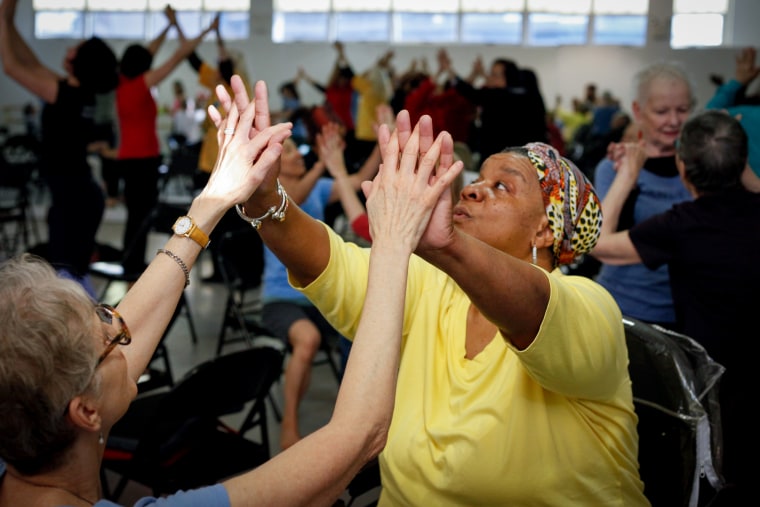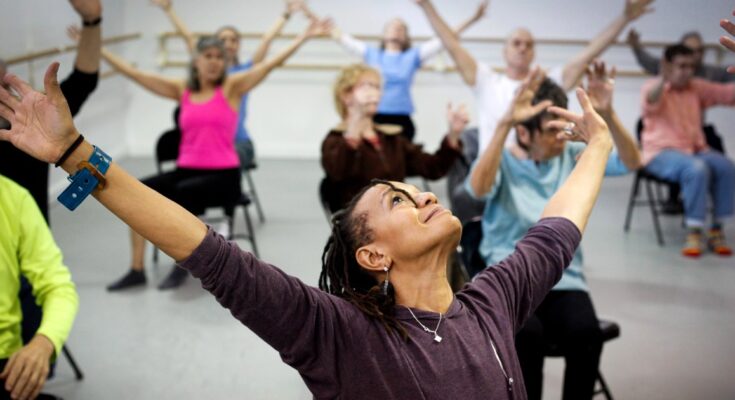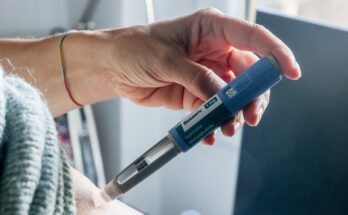[ad_1]
A few years ago, the organizers of one of the largest exercise programs in the United States for people with Parkinson’s disease realized that they had a problem: Most of the students were white.
“We’re always asking who’s not in the room, and why aren’t they in the room?” said David Leventhal, program director for Dance for PD with the Mark Morris Dance Group in New York City.
Leventhal and his team went to work. They hired more instructors who spoke Spanish or Mandarin and translated marketing materials, which increased the number of participants from the Hispanic and ethnic Chinese communities. But efforts to recruit black participants have not been nearly as effective, Leventhal said.
The exercise is considered fundamental to the treatment of Parkinson’s, with studies showing that it can relieve symptoms of the disease and improve mobility, flexibility and balance. But people who run Parkinson’s exercise programs in a handful of American cities describe great difficulty recruiting blacks.
“In Parkinson’s, movement is medicine. So if you don’t understand how to engage communities in movement, it’s basically like the medication network,” said Leventhal. “If it was a pill, there would be an uproar.”
A small study Last year by Yale researchers showed that after six months of exercise, the neurons that produce dopamine of the participants – the type destroyed by Parkinson’s – became healthier.
this year, research published by a British medical journal he encouraged a “paradigm shift” in which exercise would be “individually prescribed as medicine” to patients in an early stage of the disease.
That’s why people like Eric Johnson, founder and CEO of Movement Revolution, are frustrated. Johnson said his Chicago-area initiative offers a free six-month exercise program for Parkinson’s patients and has increased marketing in the Black community, but has had little traction. “It was a challenge,” he said. “I’ll be honest.”
A big obstacle: Many Black people don’t even know they have the disease. Biological and genetic risk factors have long been studied in people of African descent. Recent searches identified a new risk factor for Parkinson’s in the population.
Studies show that blacks are less likely to be diagnosed with Parkinson’s. Some point to the prejudice of the doctor. For example, an article published last year in Nature concluded that bias can affect the evaluation of patients with decreased facial expressivenessa common symptom of Parkinson’s in which the facial muscles stiffen, making it difficult to smile, raise the eyebrows, and express feelings.
When a white person shows up at a doctor’s office with such symptoms, a doctor probably recognizes them as signs of Parkinson’s, said Bernard Coley, an advocate for people with Parkinson’s disease, particularly those in the underserved communities. But when a black person has the same symptoms, the doctor could interpret their behavior as “disconnected” or “angry,” said Coley, who is on the board of the California chapter of the Parkinson’s Foundation.

About 1 in 5 black adults say they have been treated unfairly or disrespectfully by a health care provider in the past three years because of their race or ethnicity, compared with 3% of white adults , according to a KFF survey last year. The survey also found that 6 in 10 Black adults say they prepare for possible insults and feel they should be careful about their appearance during health care visits, while 1 in 3 White adults say they feel the same way
Coley said that prejudice can lead to a delayed or missed diagnosis of Parkinson’s, and then once diagnosed, a Black patient might be reluctant to join an exercise program, for fear of reprimand at work.
“You don’t want to be sick or challenged,” Coley said, “because (your employer) will use any excuse they can to get rid of you.”
Pride and privacy are other factors, said Wendy Lewis, CEO of the Parkinson Council in Philadelphia. “Black and brown families don’t share and say their business,” he said. “They don’t trust their history with anyone.”
An important step toward building trust and increasing participation in Parkinson’s exercise programs is having Blacks lead education and recruitment, said Tammyjo Best, nurse coordinator for the Comprehensive Care Clinic. of Parkinson’s Disease at Emory University in Atlanta. As a black person who recruits patients for clinical trials, Best said she often overcomes mistrust.
“When they look at me, they see each other,” he said.
After his unsuccessful efforts to recruit Black Parkinson’s patients into his exercise program in Chicago, Johnson concluded that the fact that he is not Black is an “important factor.”
Leventhal, who runs the Parkinson’s exercise program in New York, came to the same conclusion. His organization, the Mark Morris Dance Group, raises funds to provide microgrants to groups in disadvantaged communities to start Parkinson’s dance programs, so that “they can become the holder of the purse and the puller of the strings of the stock market and make those financial decisions for themselves.”
KFF Health News is a national newsroom that produces in-depth journalism on health issues and is one of the core operational programs at KFF – the independent source for health policy research, polling and journalism.



